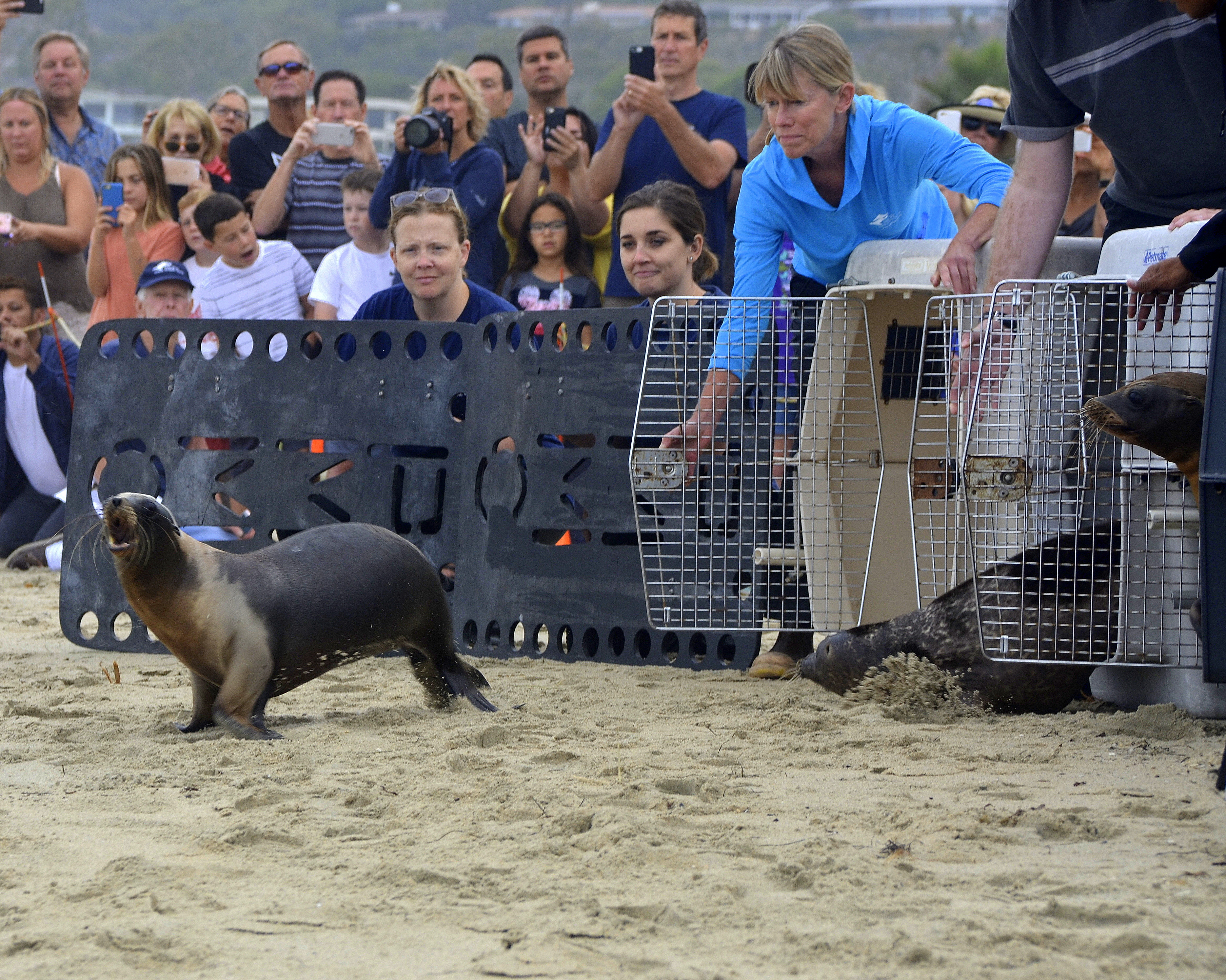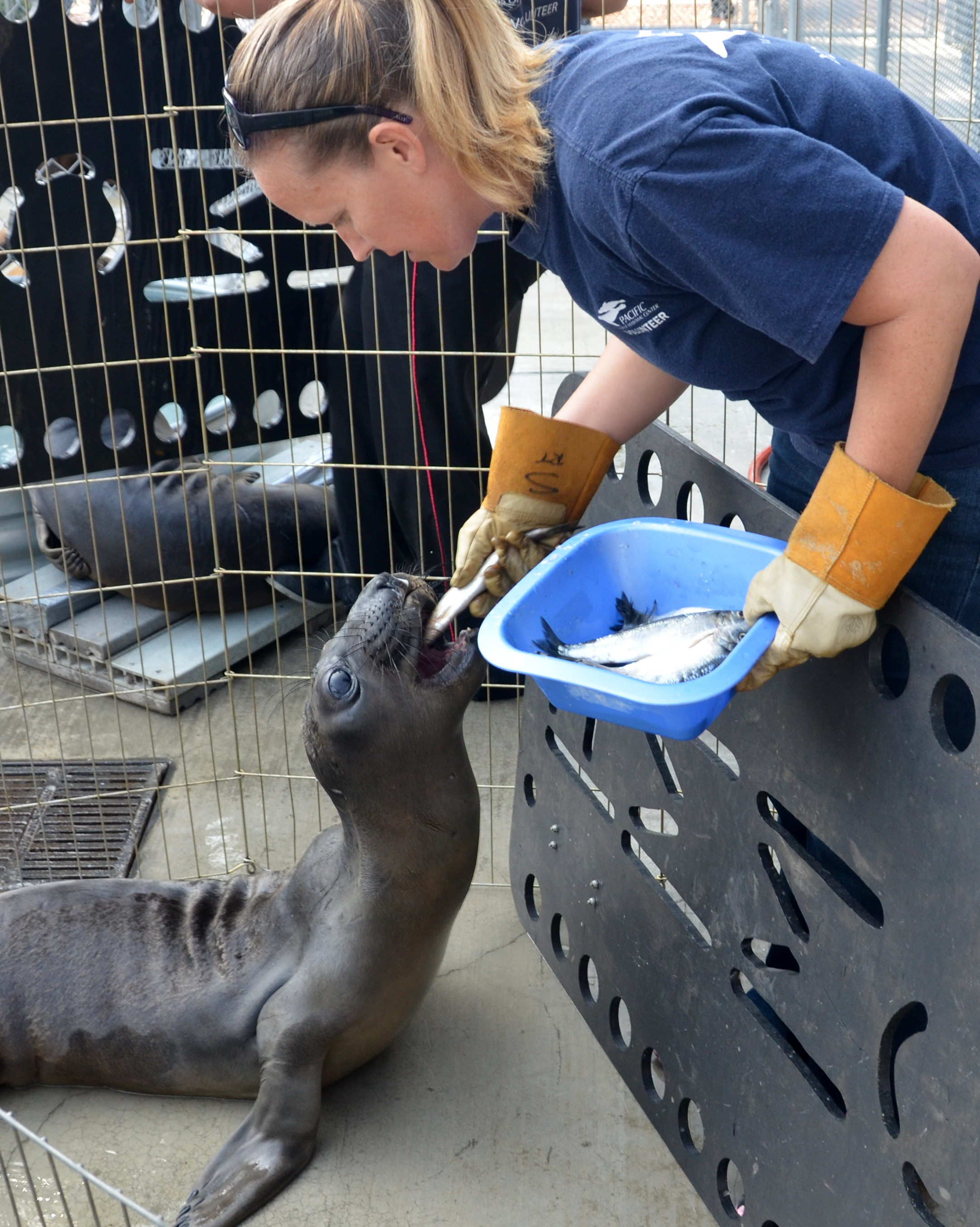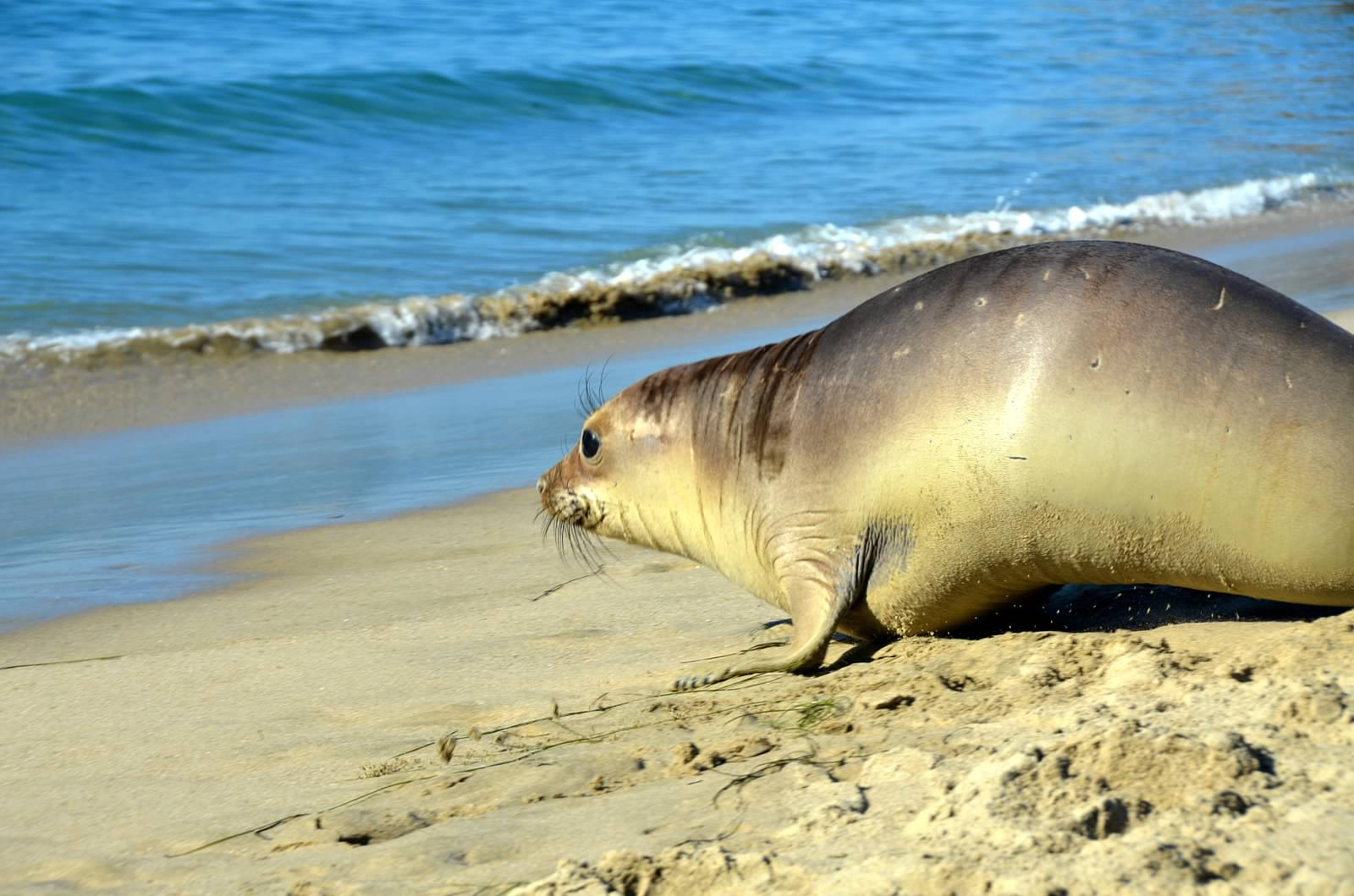Saving Seals In Orange County
How the Pacific Marine Mammal Center Rescues and Rehabilitates Seals and Sea Lions
Seals and sea lions are a common sight along the beaches of California, but that doesn’t mean that they aren’t in trouble. From pups being separated from their mothers to getting tangled in fishing lines to a lack of food, these marine creatures often find themselves at risk. Luckily, that’s where the Pacific Marine Mammal Center in Laguna Beach comes to the rescue.
 “We rescue, rehabilitate, and release marine mammals,” says Krysta Higuchi, their Events and Public Relations Coordinator. The first marine mammal rescue facility in California, they specialize in helping sick, lost, and injured Northern elephant seals, Pacific harbor seals, California sea lions, and the occasional Northern fur seal. Though, they have helped other marine animals in need. “This year we had a green sea turtle rescue and helped with three whale disentanglements.”
“We rescue, rehabilitate, and release marine mammals,” says Krysta Higuchi, their Events and Public Relations Coordinator. The first marine mammal rescue facility in California, they specialize in helping sick, lost, and injured Northern elephant seals, Pacific harbor seals, California sea lions, and the occasional Northern fur seal. Though, they have helped other marine animals in need. “This year we had a green sea turtle rescue and helped with three whale disentanglements.”
Inside the center, visitors can walk around the courtyard and observe recovering seals and sea lions in the outdoor and indoor pens and pools. Though there are live animals, it’s far from a zoo. Higuchi explains, “It’s different from a zoo in that there’s no interaction as we’re trying to keep the animals as wild as possible.”
Despite the center’s small size, they have a big job of rehabilitating animals and educating the public. “We actually have 10,000 kids come through our center through various education programs and 50,000 visitors,” she says. They offer programs like live animal viewings, multimedia presentations, and hands-on activities for school groups, girl scouts, and more.
The Pacific Marine Mammal Center may be the rescue team, but it’s local lifeguards and the public that alerts them to seals in distress. However, they caution people not to approach what might be an injured animal. She says, “We kind of ask that they observe from a distance, take a picture, and we’ll send a team out if the animal does need to be rescued.”
 The animals are then taken to the center, where they are evaluated by their veterinary team and given individualized care. “We see everything from shark bite wounds to entanglement,” says Higuchi. “More and more we’re seeing animals with fishing lines wrapped around them.” Malnourishment and dehydration are also major issues for many of the seals and sea lions they rescue. She explains, “People think that they can’t be dehydrated because they live in the ocean, but that’s actually salt water. They get the fresh water they need from the fish they eat.”
The animals are then taken to the center, where they are evaluated by their veterinary team and given individualized care. “We see everything from shark bite wounds to entanglement,” says Higuchi. “More and more we’re seeing animals with fishing lines wrapped around them.” Malnourishment and dehydration are also major issues for many of the seals and sea lions they rescue. She explains, “People think that they can’t be dehydrated because they live in the ocean, but that’s actually salt water. They get the fresh water they need from the fish they eat.”
Another problem seals and sea lions face is trash in the ocean, so Higuchi encourages people to be conscious consumers. “A lot of things that are affecting these sea lions is affecting us as well.” For example, an abundance of discarded plastic straws have made their way into the ocean. “You’d be surprised how many animals have ingested those little plastic straws and choked.”
Still, the Pacific Marine Mammal Center is proud of their rehabilitation and release rate. “We have a pretty good success rate. I think it’s about a 75% release rate per year.” Not all of them can be released, however. For example, in 2015, a seal named Ziggy was brought in when it was so young it hadn’t even learned how to swim yet. Because of that, it needed 24-hour care and formed a bond with its caretakers, meaning it never learned how to forage or take care of itself in the wild. Luckily, in such cases they work to find accredited zoos and aquariums to place the animals, and Ziggy is now happily living at the LA Zoo.
 Admission to the Pacific Marine Mammal Center is free, but as a non-profit organization, it’s completely funded by grants and donations. Anyone interested in helping is encouraged to donate money, Amazon gift cards, gas cards, and necessities like toilet paper and laundry detergent. “People kind of forget things like that keep a place like this running,” Higuchi explains.
Admission to the Pacific Marine Mammal Center is free, but as a non-profit organization, it’s completely funded by grants and donations. Anyone interested in helping is encouraged to donate money, Amazon gift cards, gas cards, and necessities like toilet paper and laundry detergent. “People kind of forget things like that keep a place like this running,” Higuchi explains.
Most of all, awareness and visitors are what keeps the center open and able to help the local marine wildlife. She says, “We love visitors, we love the support and for people to come through and learn about the seals.”
-By Ettractions Digital Content Editor, ALLISON BENNETT
Other States: California

You are not logged in. To login or create an account please click here